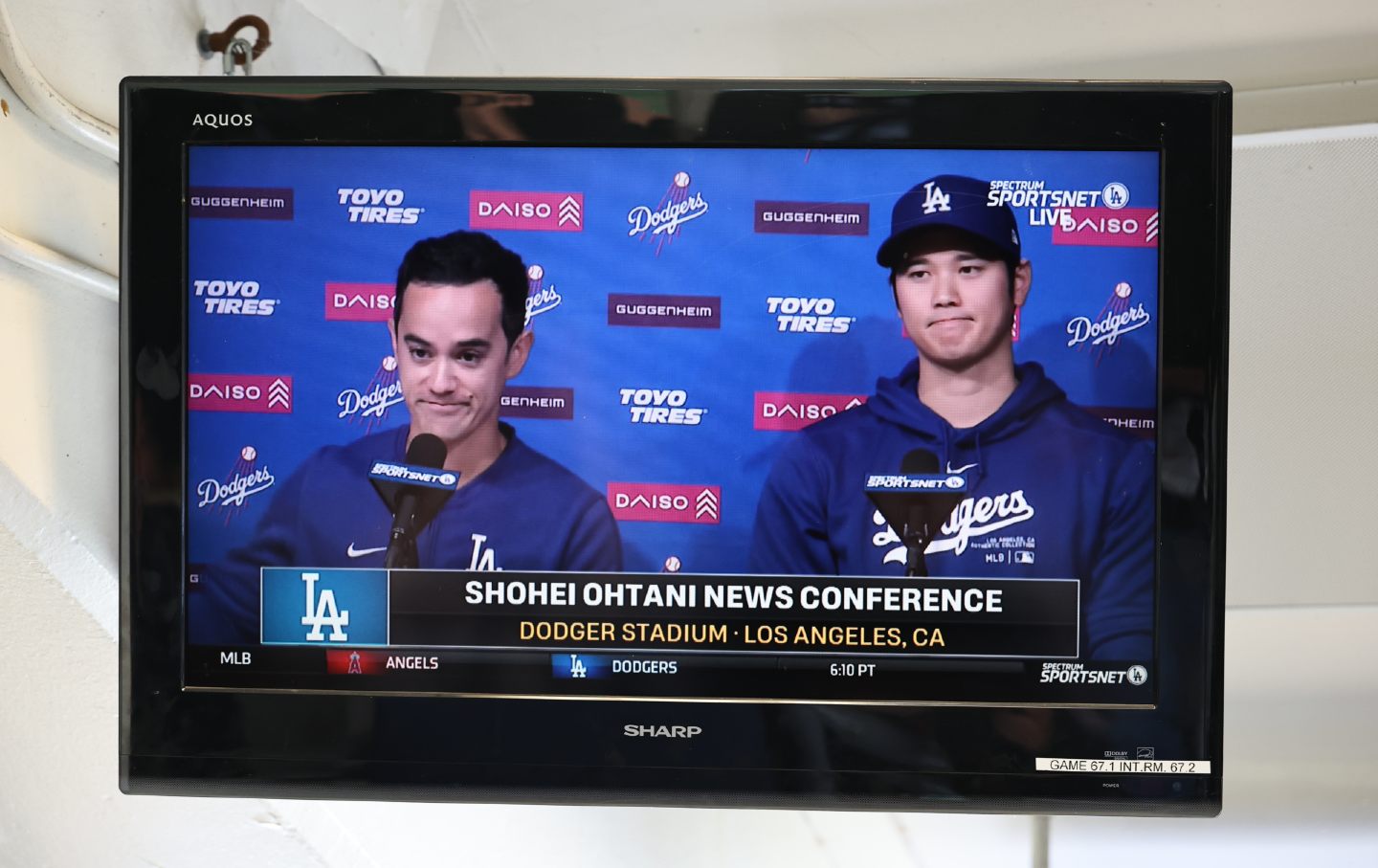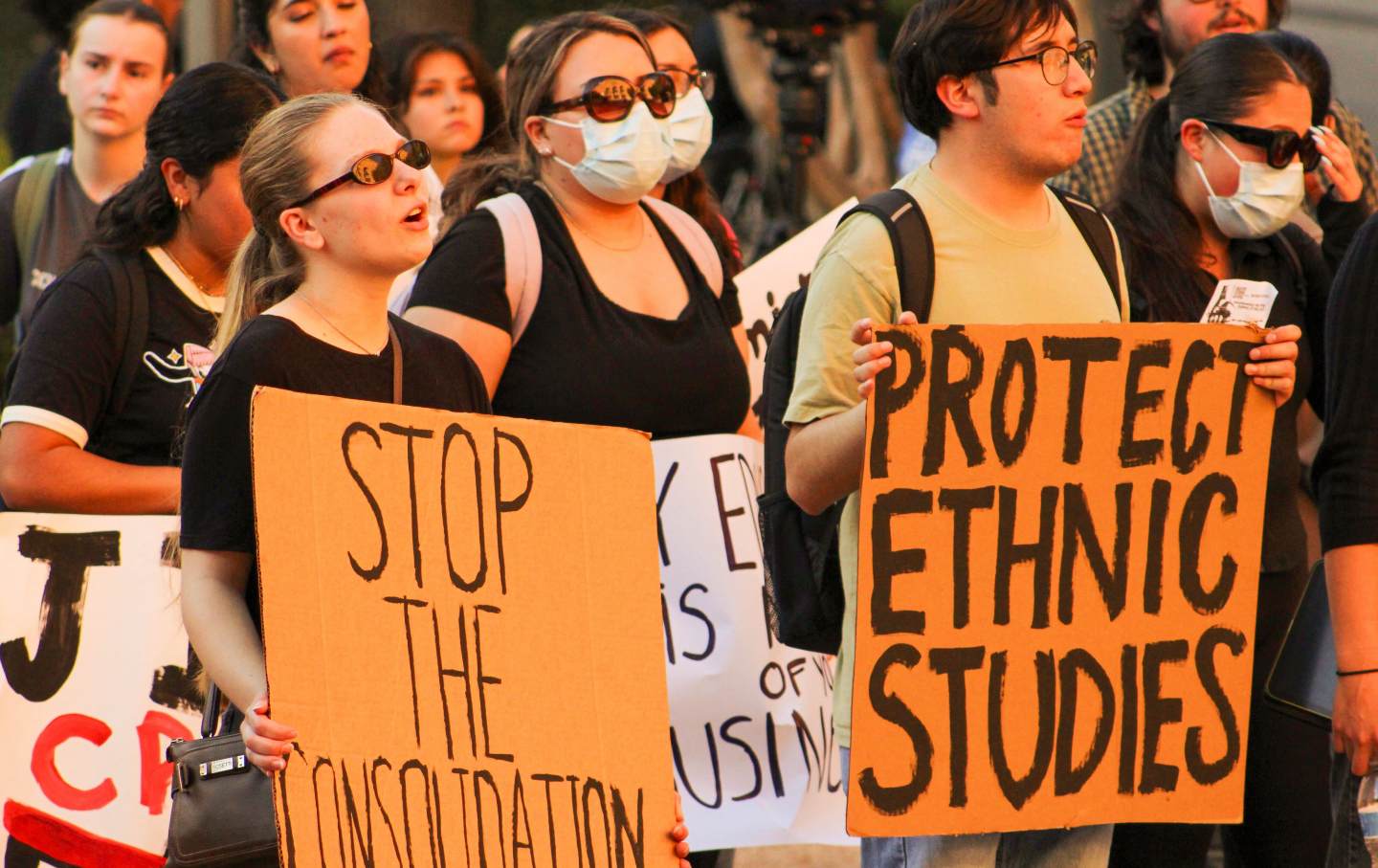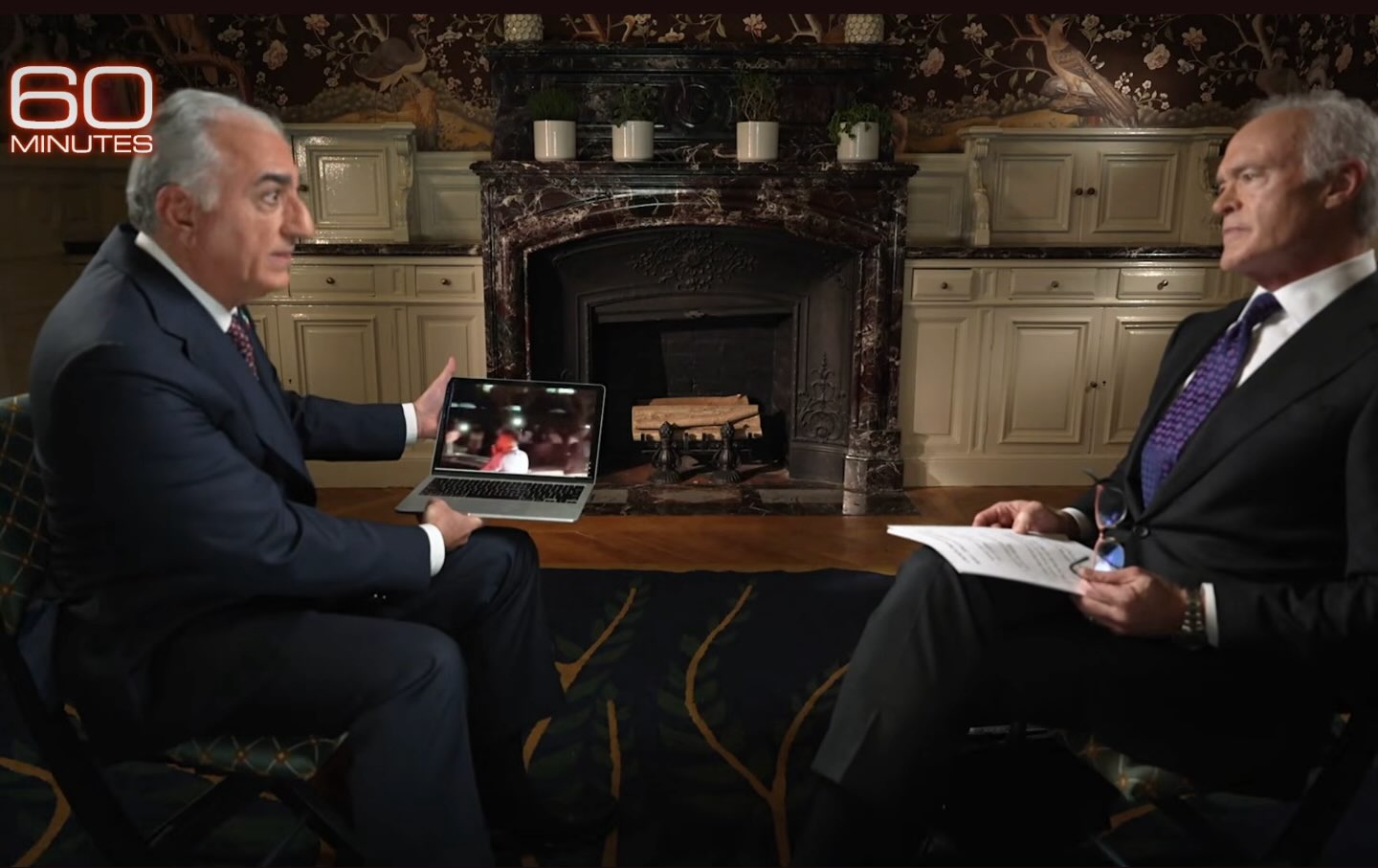Online Gambling Has Swallowed Professional Sports
Sports leagues partnered with legal gambling operations to fill their coffers. The deals are bringing in millions, but now they threaten to undermine what makes sports special.

The Los Angeles Dodgers’ Shohei Ohtani, right, appeared at a press conference on March 25 to address a gambling scandal involving his former interpreter.
(Michael Owens / Getty Images)Gambling is not just essential to the economy of sports and sports media; it has, in essence, become the economy of sports and sports media. Faced with an aging and fragmenting television audience, the sports world turned to partnering with legal gambling operations to fill its coffers. From a dollars-and-cents perspective, this has been wildly successful, and the revenue just keeps growing. But in the process, sports executives ushered a fox into the henhouse. It’s not the growing addiction epidemic among fans—particularly younger ones—that concerns and threatens the corner office. It’s the scandals of the athletes themselves. This month, players have allegedly used inside information to place bets, allegedly fixed individual and team outcomes, and not-so-allegedly damaged the credibility of their sports. These stories, once incredibly rare, now come out with the regularity of a metronome.
One of this week’s scandals involves Ippei Mizuhara—the translator for the greatest baseball player on earth, Shohei Ohtani. Mizuhara was caught betting $4.5 million with an illegal bookie operation that was raided in California. But Ohtani’s name was found on the betting slips. Mizuhara initially said that this was because Ohtani was helping him pay off his debts. But Ohtani says that Mizuhara stole the money from his accounts and that he was shocked—shocked!—to find that gambling was going on. People are skeptical of Ohtani’s account and wonder whose bets Mizuhara was really placing. No matter the truth of the story, it has tarnished Ohtani’s reputation and brought the outcomes of games into doubt. It also caused Pete Rose, the all-time hits leader who was banned for life for betting on baseball, to say, “Well, back in the ’70s and ’80s, I wish I’d had an interpreter. I’d be scot-free.” Anytime Pete Rose is able to roast you, then you know you messed up.
Then, as we were still getting our heads around the Ohtani scandal, Cleveland Cavaliers coach JB Bickerstaff came forward to say that he has been threatened by people betting on games. All-Star Indiana Pacers guard Tyrese Haliburton said he feels like a gambling “prop” and, “To half the world, I’m just helping them make money on DraftKings or whatever.”
As hoops writer Tom Ziller wrote,
The question is what happens when a scandal inevitably hits the NBA again. Will the league continue to push growth of sports betting, as is its capitalistic imperative? One presumes that a study will hit in the next couple of years showing an enormous uptick in gambling addiction. Will the NBA still be lowering the barrier to entry at that point? Something truly dangerous will happen at some point. What’s the league’s response going to be? The reckoning will come. Who will it take down when it arrives?
He wrote that just days before another gambling fiasco, this one involving Toronto Raptors bench player Jontay Porter, came to light.
Pro athletes are some of the most competitive people on earth; they have disposable income, a lot of downtime; and they are—like the rest of us—on their phones constantly. This will keep happening. It’s easy to “game a bet” since you are not just betting on wins or losses. You can bet upon the performances of individual players, which is far easier to manipulate.
More on gambling in sports
The media has normalized the hyper-focus on gambling. Big-time, award-winning broadcasters talk betting lines with the relish with which they used to talk about touchdowns and slam dunks. ESPN’s Rece Davis, after one gambling segment, said, “You know what? Some would call this wagering, gambling; the way you’ve sold this, I think what it is, is a risk-free investment.”
How are we supposed to trust investigative sports media to examine the corrosive effects of gambling on the sports world when its economic lifeblood depends upon more bets, more addicts, and more scandals? The thing that sports has over other forms of entertainment is the undetermined outcome. If people start to believe that the situation is rigged, they will turn away, and sports will become pro wrestling.
There is no good answer for this, because sports executives believe that to terminate the media’s and the league’s partnerships with legal-betting operations would be to kill the golden goose. But gambling is no golden goose—it’s the fox coming for their throats.








